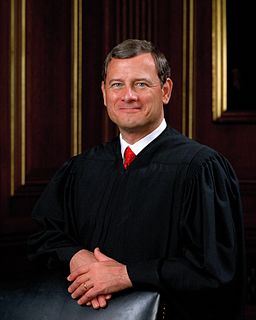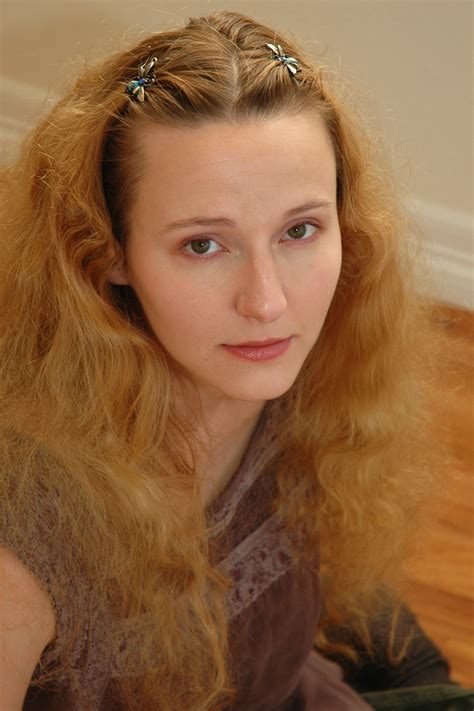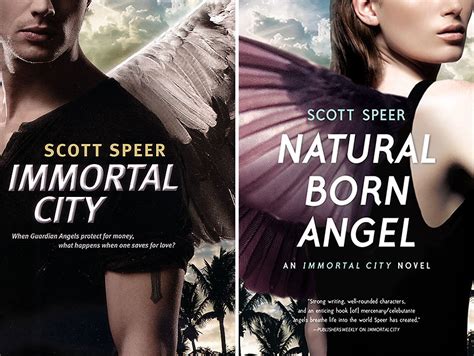A Quote by Milan Kundera
When we want to give expression to a dramatic situation in our lives, we tend to use metaphors of heaviness. We say that something has become a great burden to us. We either bear the burden or fail and go down with it, we struggle with it, win or lose. And Sabina - what had come over her? Nothing. She had left a man because she felt like leaving him. Had he persecuted her? Had he tried to take revenge on her? No. Her drama was a drama not of heaviness but of lightness. What fell to her lot was not the burden, but the unbearable lightness of being.
Quote Topics
Bear
Because
Become
Being
Burden
Come
Down
Drama
Dramatic
Either
Expression
Fail
Fell
Felt
Give
Go
Great
Had
Heaviness
Her
Him
Leaving
Leaving Him
Left
Lightness
Like
Lives
Lose
Lot
Man
Metaphors
Nothing
Our
Our Lives
Over
Persecuted
Revenge
Say
She
Situation
Something
Struggle
Take
Tend
Tried
Unbearable
Unbearable Lightness
Unbearable Lightness Of Being
Us
Use
Want
Win
Win Or Lose
Related Quotes
...she merely wished to find a way out of the maze. She knew that she had become a burden to him: she took things too seriously, turning everything into a tragedy, and failed to grasp the lightness and amusing insignificance of physical love. How she wished she could learn lightness! She yearned for someone to help her out of her anachronistic shell.
She had been sharing a house with him for a week, and he had not once flirted with her. He had worked with her, asked her opinion, slapped her on the knuckles figuratively speaking when she was on the wrong track, and acknowledged that she was right when she corrected him. Dammit, he had treated her like a human being.
At that moment a very good thing was happening to her. Four good things had happened to her, in fact, since she came to Misselthwaite Manor. She had felt as if she had understood a robin and that he had understood her; she had run in the wind until her blood had grown warm; she had been healthily hungry for the first time in her life; and she had found out what it was to be sorry for someone.
Sharp knives seemed to cut her delicate feet, yet she hardly felt them, so deep was the pain in her heart. She could not forget that this was the last night she would ever see the one for whom she had left her home and family, had given up her beautiful voice, and had day by day endured unending torment, of which he knew nothing at all. An eternal night awaited her.
As she had been walking from the ward to that room, she had felt such pure hatred that now she had no more rancor left in her heart. She had finally allowed her negative feelings to surface, feelings that had been repressed for years in her soul. She had actually FELT them, and they were no longer necessary, they could leave.
She had time to make room for him in her closet. The cat had time to get used to him. They had all the time they needed, because he'd told her he was hers, and he was a man of his word. "I've got all I need," she told him. He leaned down and kissed her again, then stroked a finger over her temple, tucking a loose strand of hair behind her ear. "I want you to know," he said. "That you're the best choice I ever made." "No regrets?" "No regrets.
He lifted his gaze to the framed photograph of Tanya and him taken on their wedding day. God, she had been lovely. Her smile had come through her eyes straight from her heart. He had known unequivocally that she loved him. He believed to this day that she had died knowing that he loved her. How could she not know? He had dedicated his life to never letting her doubt it.
Before her marriage she had thought that she had love within her grasp; but since the happiness which she had expected this love to bring her hadn’t come, she supposed she must have been mistaken. And Emma tried to imagine just what was meant, in life, by the words “bliss,” “passion,” and “rapture” - words that had seemed so beautiful to her in books.
Jacks stood beside her. Instead of saying anything, she felt his fingers trace up her palm and then lace into hers. He had taken her hand before, quickly and for functional reasons—usually to drag her off to someplace she didn’t want to go—but he had never held her hand. Not the way couples did in parks or lovers did in old movies. Maddy stood there and felt the heat of his grip. It made her think of that first night in the diner, when they had talked about pretend memories and she had felt so connected to him.




































